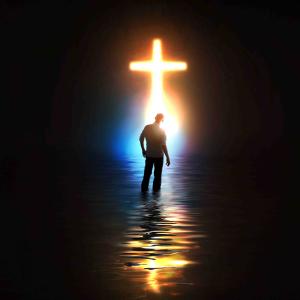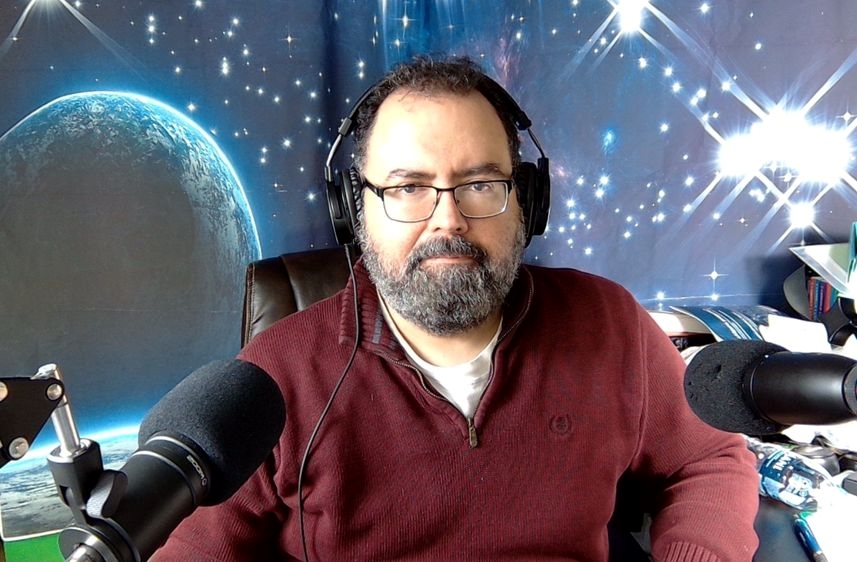
The post-modern world which has, especially in recent years, influenced 21st century pop culture in general, frequently challenges the viability of all religions and their foundational sacred texts. The post-modernist movement essentially adheres to the notion that there is no universal truth or reality and that the only reality or “truth” is what an individual constructs in their own head.
What began mostly as evolution from existentialist and modernist philosophical movement in the 20th century has since morphed into somewhat of a disastrous and digressive assault on the development of knowledge and especially on religious knowledge. In a prior article “Did We Create God?“, I have stated that where there is no universal truth, there can be no religion or God. If we become simultaneous creators and arbitrators of reality, we can’t really follow any religious paradigms. And that is exactly what advocates of post-modernity want. Post-modernity envisions a world where man is central to his/her own reality.
Where then, will this philosophical “end-game” play out in the coming years? Will all religions face eventual extinction at the hand of this sort of atheist counter-philosophy?
If we take a birds-eye view of what is really happening across the globe, we will see some shifts between religions as well as increases and declines therein. There are indeed changes of religious faith due to a variety of factors which are both man-made such as those which are philosophically based, migration, and socio-political/economic conditions as well as others which are founded in religious paradigms themselves.
It is indeed surprising but true that certain narratives within the sacred texts themselves, when not realizable or in evidence within modern day society, serve to undermine their belief. For example, in the case of all three Abrahamic religions, there is never ending “Messiah Problem”. Regardless of whether one is a Christian, Jew or Muslim, followers of today are either awaiting the first or the second coming of the Messiah. Followers of all three faiths do their best to remain faithful despite knowing that, at least within their current human state of being, they may never see the Messiah within their lifespans.
There is however an inherent problem with the concept of “waiting for the Messiah” or awaiting anything for many years. Despite all the religious teaching, despite all the rituality of worship, despite all the preaching and prayer to align oneself as a believer, blind faith, in the absence of witness to the Messiah, is a very difficult sell when most of us maintain our labor and toils under secular government within a pop culture.
And while strong arguments can be made to use our knowledge and perception of the orderly world and the broad, beautiful, balanced universe as absolute testament and evidence of God, eyewitness testimony of Him is needed to serve to align and promote deference to a god greater than ourselves to solidify our belief therein.
Gambling with End of Days Prophecy
As stated earlier, most of us will not experience the return of the Messiah in our human lifetime. We will not experience the fiery battle and judgment on Earth that is central to eschatological prophecy. Oh, we do see and hear many a populist modern-day prophet trying to connect the “end of time” dots between the Bible and actual modern day events. But as they try to gamble or book odds on specifically when the war between good and evil will commence and end, most of us are just trying to make sense of how to remain in faith in the meantime.
The Books of Wisdom
When I started to really delve into reading the Bible, I had many questions as I was approaching my study from a secular, empirical point of view. I found many contradictions, many inconsistencies and many anomalies within the sacred scriptures. I came to realize that despite these differences, there remained only three things I needed to understand in order to remain faithful.
What is Vanity and How Can I Navigate Away From It?
My first true reading of the Bible seemed like a lot of front loaded content commencing with the books of Genesis which seemed like the foundational history of creation. However, it was when I got to the Book of Ecclesiastes that everything else made sense. Perhaps the most important book within the Old Testament, the Book of Ecclesiastes really could’ve been written in this or any age to address what typically happens to us when we steer away from God and digress into vain things and purposes. The literal meaning of “vanity” is essentially to stray from the path of God. Ecclesiastes thus advocates a transcendence of wealth, and really anything of earthly desire into an understanding that other than God, all other objectives and attainments are just vanity.
This is not to say that noble endeavors are atheist but rather that such endeavors and goals must include God in the project in some way otherwise, they serve no purpose and eventually leave our souls dissatisfied and empty.
How to Live with Suffering and Pain?
In a prior article “Why Do People Reject Religion?“, I had talked about the question of suffering and how this question has caused many believers to lose faith. The Book of Job is again, one of the great books of the Old Testament that transcends time. It is nothing more than the story of a man’s great suffering, crying out to God in desperation, and then regaining what he had lost and solidifying his faith. If nothing else, every human should read this book as every human suffers some type of horror within their lifetime and they may learn how to cope and understand how to live faithfully in times of great suffering.
What is the Totality of the Message of the Bible?
If you’re like many churchgoers, you may have questioned the snippets of verses you’ve received over the years by priests and ministers or maybe even by your close associates or neighbors. It’s fine to quote and to discuss specific scriptures but it is more important to understand that the totality of the “message” of the bible is that we’re not simply following books of laws or limits but we have a purpose on this Earth and that this, our collective story, has a beginning, a middle and an end via the return of the Messiah. We are just not a point in time but yet we are not all created within the same time. We are however, created to remain faithful until this, our whole story is complete.








